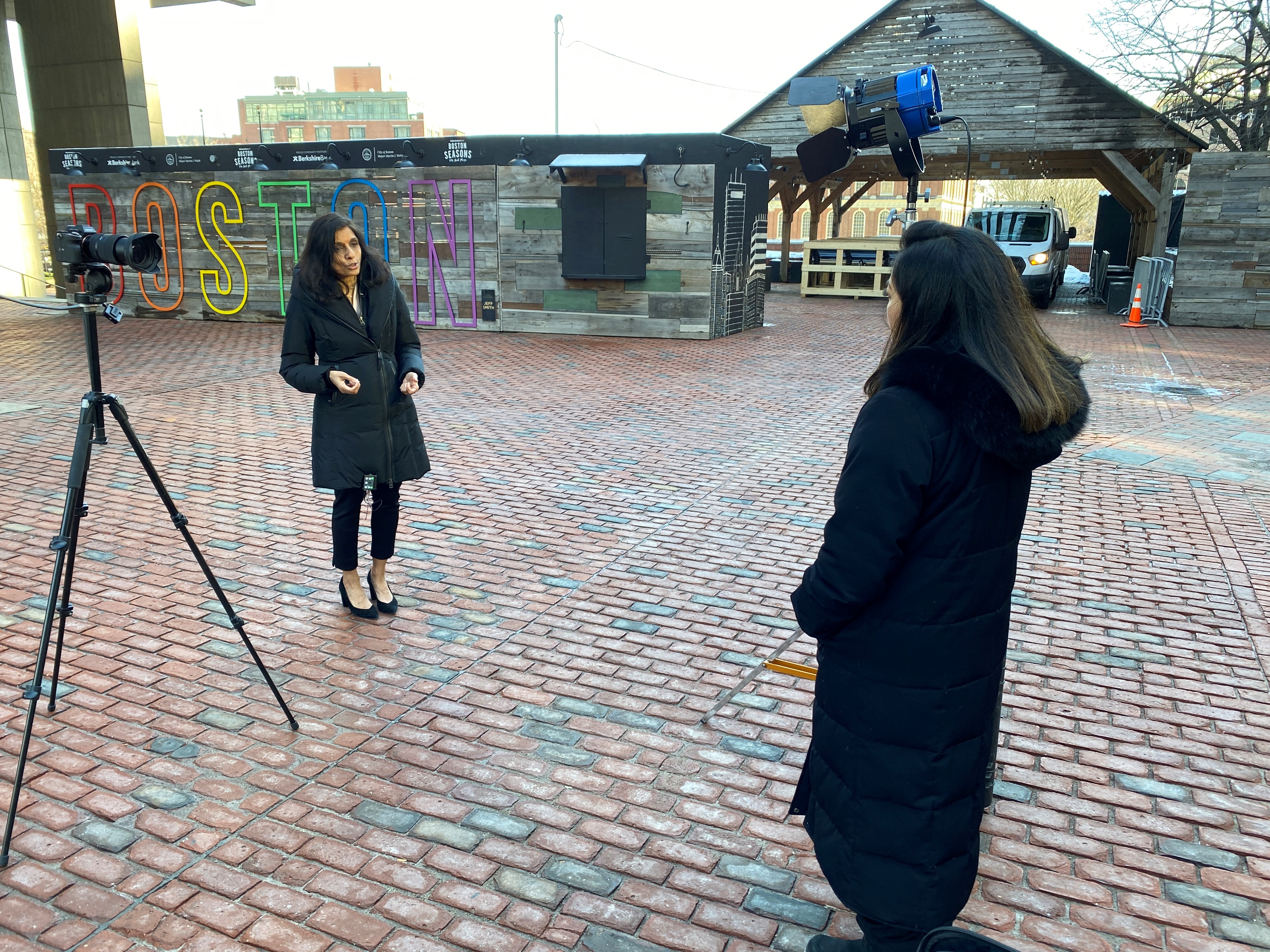Months after clearing the homeless encampment in known as Mass. and Cass, Boston city leaders on Tuesday outlined the next steps for addressing the homelessness and substance abuse crises that helped create the settlement.
Mayor Michelle Wu detailed an 11-point plan to improve public safety, health and cleanliness in the area around Massachusetts Avenue and Melnea Cass Boulevard, as well as reduce overcrowding and stop more encampments from forming, in the spring and summer, while the weather is warm.
They are, as released by the city:
- Promote public safety through the Boston Police Department and Boston Public Health Commission Public Safety
- Increase presence of joint public health and public safety outreach teams
- Prevent encampments
- Increase street cleaning
- Promote safe environment for accessing services at Engagement Center
- Increase parking enforcement
- Make the neighborhood more beautiful and more walkable
- Increase outreach
- Open new day centers outside of the neighborhood
- Provide transportation and referrals to day centers outside of the neighborhood
- Strengthen supportive services at low-threshold shelter and housing sites
She and her team, from across city government, also announced a new strategy for dealing with homelessness in the city:
Mass. and Cass had become an open-air drug market by last year, one that was becoming increasingly dangerous for residents and neighbors alike. The city spent weeks preparing people living in the area for a deadline to move out, and the last tents were cleared by Jan. 13.
"We are looking to build on this," Wu said Tuesday.
About 150 people formerly living in tents in the encampments were referred to housing or outreach programs, the city says.
In March, NBC Boston found that tents were still gone, but drugs and crime remained. Groups of people were still gathering, and two men had been arrested in the neighborhood in one week on charges of human sex trafficking, raising familiar concerns about safety despite an increased police presence.
Boston police Lt. Pete Messina, who's part of the city's new initiative, on Tuesday gave an example of the public safety challenges facing officers and their partners. He said a person was recently arrested while dealing drugs. Officers found them with multiple kinds of drugs, money and a pellet gun that looked like a real gun.
The person was unrepentant, he told officers, and didn't want to get sober: "They had once tried to get sober and they didn't like it," Messina explained.
One big worry for people working on the issue of homelessness has been the concentration of shelters, methadone clinics and help for the homeless at Mass. and Cass. Some think those services should be dispersed.
"Do I think decentralizing makes sense? Sure, of course it does. But where are you going to decentralize to?" said Lyndia Downie, executive director at Pine Street Inn, in March.
Wu on Tuesday emphasized the importance of spreading out services throughout the city -- she'd heard throughout the process that what people in other communities don't want is for the encampment to be moved in its entirety to another part of the city.
"This is really about getting to root causes, changing the dynamic," she said, noting that part of the reason the dynamic was formed was because services had been concentrated in one area.
More on Mass. and Cass
Sue Sullivan, who represents business owners in the Newmarket area said while things are getting better, they still see issues.
"There has been a real renewed commitment to drug arrests and dealers and sex trafficking arrests and I will tell you it thins out the crowds," Sullivan said.
Gerry DiPierro of DiPierro Construction hopes the latest plan does what other plans for the area fell short of accomplishing.
"We are disgusted at this point, and we are just trying to make the best of it, until someone is able to do something," he said.



